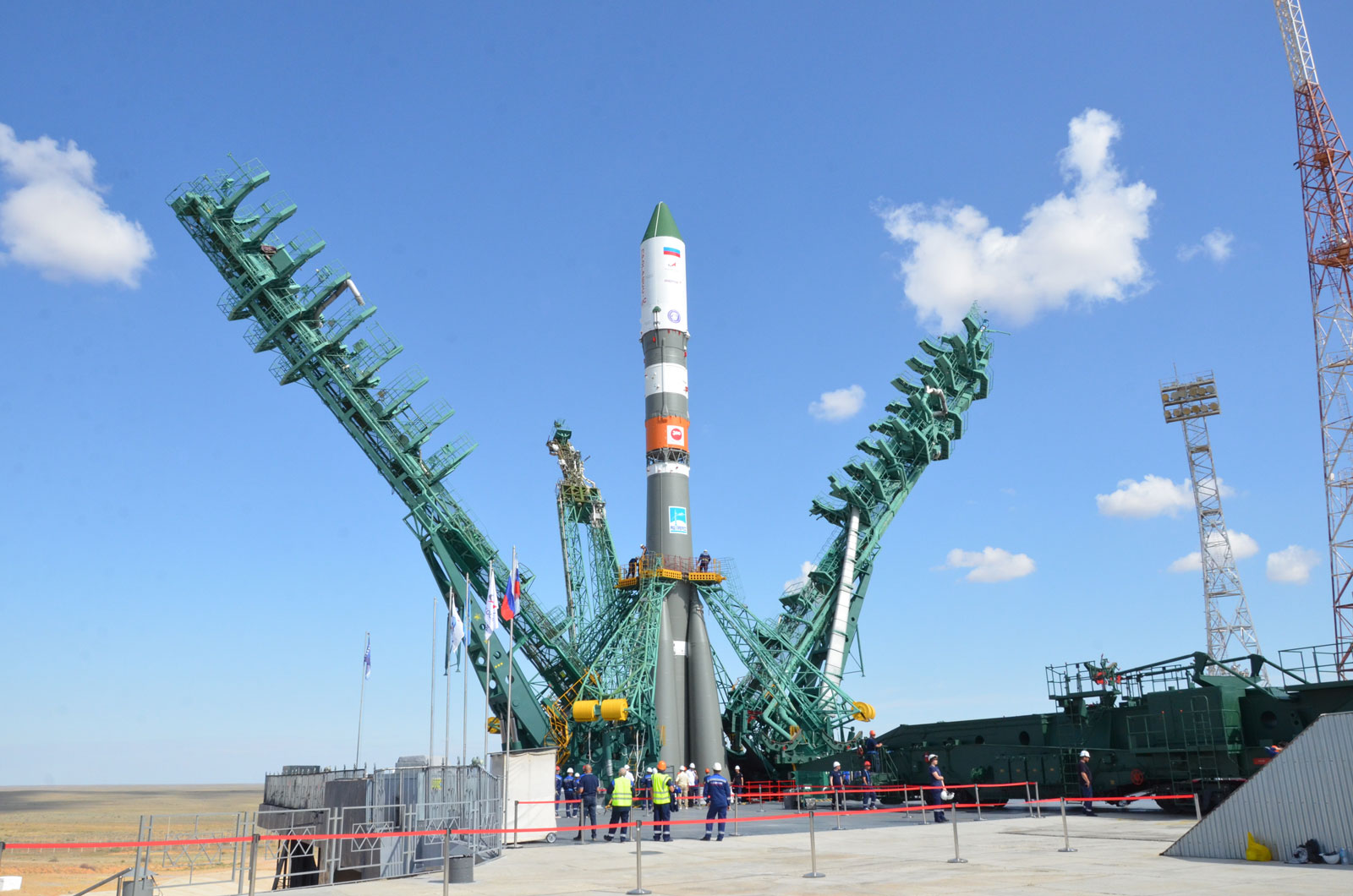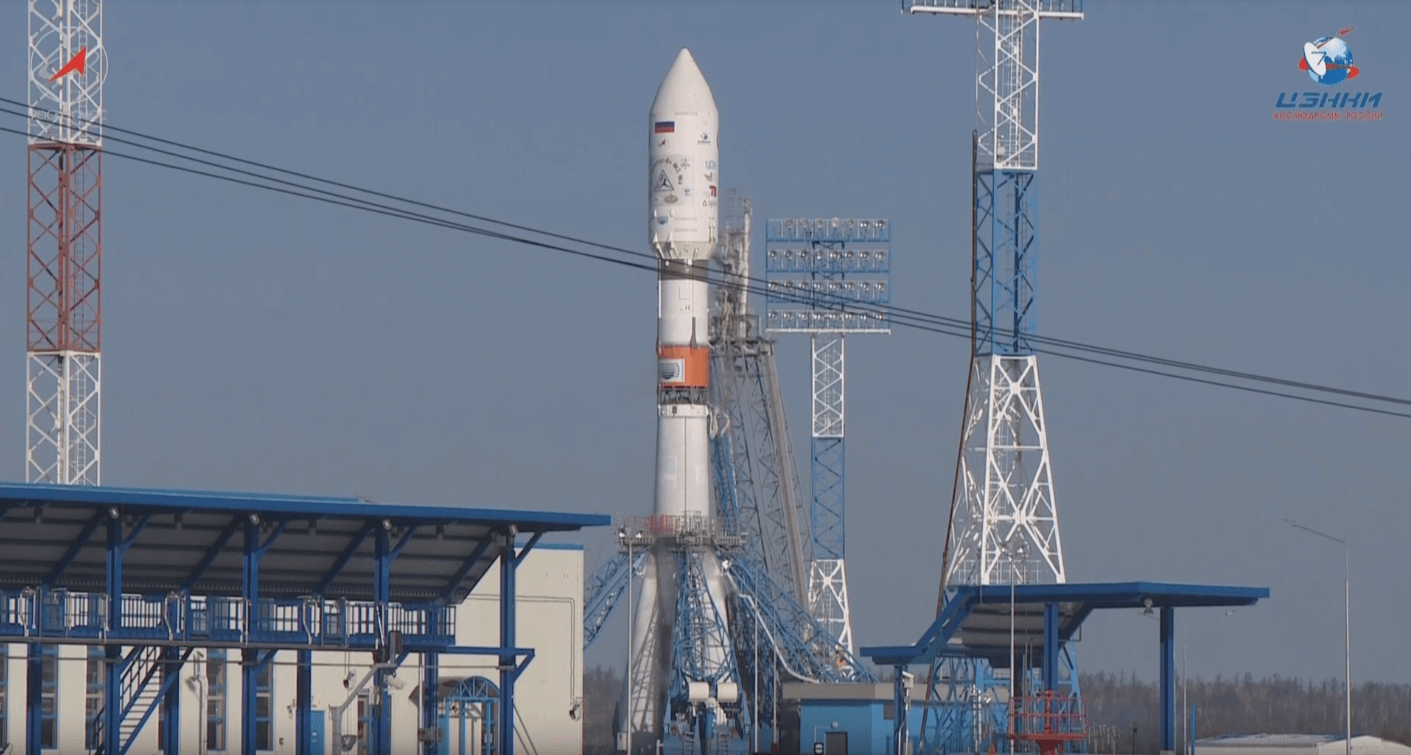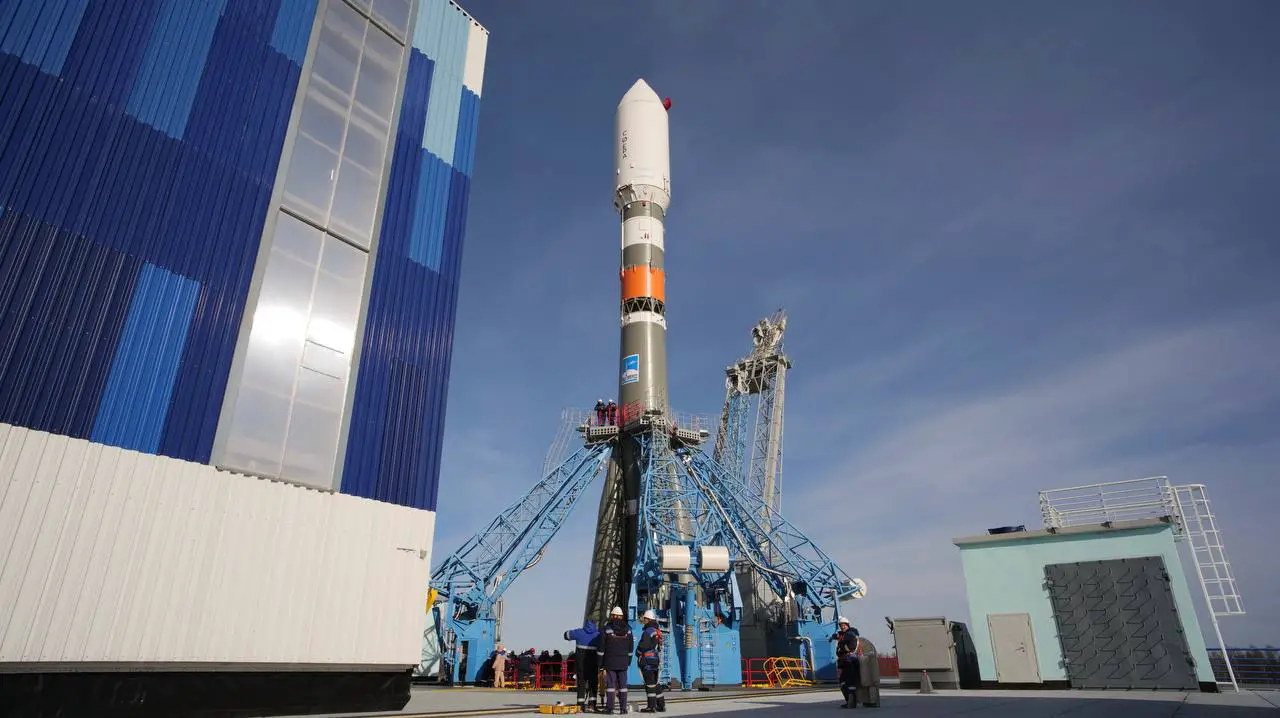Tag: Russian Federal Space Agency (ROSCOSMOS)
-

Russian Federal Space Agency (ROSCOSMOS) | Soyuz 2.1a | Progress MS-27 (88P)
Progress resupply mission to the International Space Station.
-

Russian Federal Space Agency (ROSCOSMOS) | Soyuz 2.1a/Fregat-M | Kondor-FKA No.2
The Kondor-FKA is a small civilian radar Earth observation satellite designed by NPO Mashinostroyeniya as a civilian counterpart to the Kondor-E satellite. The Kondor satellite features a S-band synthetic aperture radar (SAR), which can conduct both continous swath surweys or detailed spot surveys. The swath width is 10 km. Ground resolution is 1 to…
-

Russian Federal Space Agency (ROSCOSMOS) | Soyuz 2.1a | Obzor-R No.1
The Russian Obzor-R satellite is a planned X-band radar earth observation satellite designed by TsSKB-Progress. In 2012, the development of the Arkon-2M radar satellite was stopped and instead the development of the Obzor-R was initiated. The satellite features the BRLK X-band Synthetic Aperture Radar as the imaging instrument with a ground resolution of…
-

Russian Federal Space Agency (ROSCOSMOS) | Soyuz 2.1a | Progress MS-28 (89P)
Progress resupply mission to the International Space Station.
-

Russian Federal Space Agency (ROSCOSMOS) | Soyuz 2.1a | Bion-M No. 2
Bion-M is the next generation of Russian biological research satellites. While retaining the Vostok/Zenit-derived reentry module of the earlier Bion, the propulsion module has been replace by a Yantar type module, which provides maneuvering capabilities and longer mission support. The mission duration has been increased to up to 6 months by using solar cells for…
-

Russian Federal Space Agency (ROSCOSMOS) | Soyuz 2.1a | Soyuz MS-26
Soyuz MS-26 will carry two cosmonauts and one astronaut to the International Space Station aboard the Soyuz spacecraft from the Baikonur Cosmodrome in Kazakhstan.
-

Russian Federal Space Agency (ROSCOSMOS) | Soyuz 2.1b/Fregat-M | Ionosfera-M 1 & 2
Ionosfera is a constellation of four ionospheric and magnetospheric research satellites developed by for Roscosmos for the project Ionozond. The satellites will operate on circular sun-synchronous orbits (SSO), at altitude of about 800 km and located in two orbital planes of two satellites each. The following science instruments are carried on the…
-

Russian Federal Space Agency (ROSCOSMOS) | Soyuz 2.1a | Progress MS-29 (90P)
Progress resupply mission to the International Space Station.